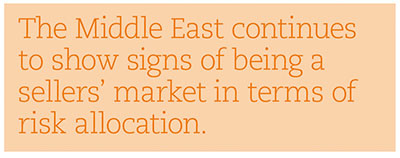
The executive regulations (Regulations) in relation to the UAE competition law came into force on October 27, 2014. This article examines some practical implications of the merger control provisions.
Where a proposed ‘economic concentration’ – capturing both share acquisitions and transfers of assets and liabilities – may affect competition in a relevant market, particularly to create or enhance a dominant position, an application for pre-approval should be submitted to the Competition Department of the Ministry of Economy (the Department) at least 30 days before “the date of concluding the contract or agreement concerning the economic concentration”.
The Regulations also set out a process whereby interested third parties can file a complaint with the Department in relation to a violation of the competition law. The Department may also conduct investigations on its own initiative.
It remains to be seen how the process will work in practice, but what is known is:
• An application is required where the market share of the parties exceeds a specific percentage of the total transactions undertaken in the relevant market. Such percentage is to be specified by the Council of Ministers. There is no set timeframe for this decision to be issued.
• No guidance is given in the Regulations on what constitutes a ‘relevant market’ in any given case. The way in which a market is defined may vary and affects whether any economic concentration is captured.
• It is unclear whether the parties to an economic concentration may proceed to sign an agreement providing that completion is conditional upon clearance; the parties may not wish to commence a formal approval process without a signed agreement in place.
• The application must include a report on the economic effect of the concentration, stating the advantages thereof on the relevant market, and including suggestions to eliminate any potential disadvantages. The parties must grant a special power of attorney to one of their number to submit the application. These requirements will need to be factored into the transaction timetable.
• The implication of the 30-day notice period is not entirely clear. The Minister has a maximum of 135 days from the date of submission to issue a decision, and until a decision is issued, the relevant transaction must not proceed. If he issues a decision earlier than 30 days after the submission date, it is unclear whether the parties would be free to complete.
• There is no specific process allowing preliminary discussions with the Department to determine whether an approval is needed for a specific transaction. It is unclear whether, in practice, the Department will issue informal feedback in advance. Given the potentially lengthy time periods involved, a fast-track process would be useful.
• Any information which the parties wish to be treated as confidential must be clearly marked as such, and a non-confidential summary of such information must be provided. It is difficult to know how the requirement for such a summary will be applied in practice. This may have unwelcome implications for parties dealing with sensitive commercial information.
• The risk of complaints by third parties, potentially leading to lengthy periods of dispute and negotiations, may encourage parties to make a clearance application even if there is doubt around whether one is required. There also do not appear to be any specific sanctions against making a complaint which is later rejected, which may encourage tactical complaints by third parties seeking to derail transactions involving their competitors.
Although the further detail set out in the Regulations is to be welcomed, many questions remain as to how and when the provisions will be implemented.
|












































